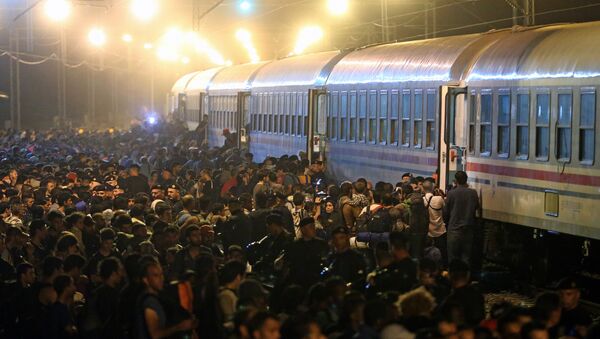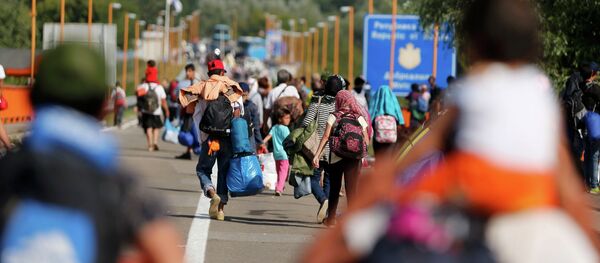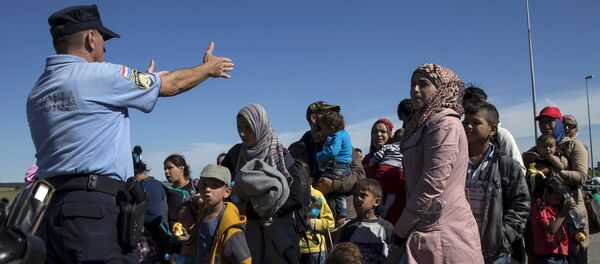MOSCOW (Sputnik) — Traffic restrictions between Croatia and Serbia amid a massive influx of refugees were imposed due to political and economic reasons, such as the lack of foreign policy and campaigning for upcoming elections, experts told Sputnik on Friday.
On September 18, Croatia closed traffic on seven of eight road border crossings with Serbia, stating it could not handle any more refugees, who had been crossing into Croatia on a daily basis, in search of alternative routes to Western Europe after Hungary sealed its border with Serbia.
Earlier in the day, Croatia re-opened its border with Serbia to all traffic after week-long access restrictions. In response, Serbia lifted its restrictions on Croatian imports and cargo traffic from the neighbouring country.
"Immediate reasons [for traffic restrictions] are clear, both countries are under extreme pressure to handle numbers of people that are going through them. Croatia would like Serbians to redirect such flow back to Hungary, which is very difficult, given the fence Hungarians have built," Nenad Filipovic, Academic Director of the IEDC – Bled School of Management, said.
According to Filipovic, both sides are using a strict stance in the conflict due to some background political and economic reasons, such as upcoming elections in Croatia.
"The [Croatian] government is facing the challenge of deposition… so the government would like to present itself as protecting national interests," Filipovic explained.
Filipovic expressed his hope that the tension between the two countries would stay present, but would not escalate further.
"As Croatia lacked a [foreign policy] strategy, particularly under the current Minister of Foreign Affairs Vesna Pusic, it either failed to react in a timely manner or reacted too weakly – basically we didn't protect our interests," Racic, a contributing writer for The Wall Street Journal and Croatia’s leading Vecernji List newspaper, argued.
According to Racic, Croatian Prime Minister Zoran Milanovic is overcompensating for the lack of adequate policy to win the upcoming elections by responding to Serbia with such strict measures as closing traffic on seven of its eight border crossings.
"Serbia has nothing to lose in this fight. Now it sees the refugee crisis as an opportunity to raise its profile in the European Union at Croatia's expense, while it waits for larger and larger EU aid payments," Racic warned.
Racic argued that without a coherent and fair EU policy, other EU member states would also be stuck with thousands of asylum-seekers from the Middle East and North Africa they cannot handle.



